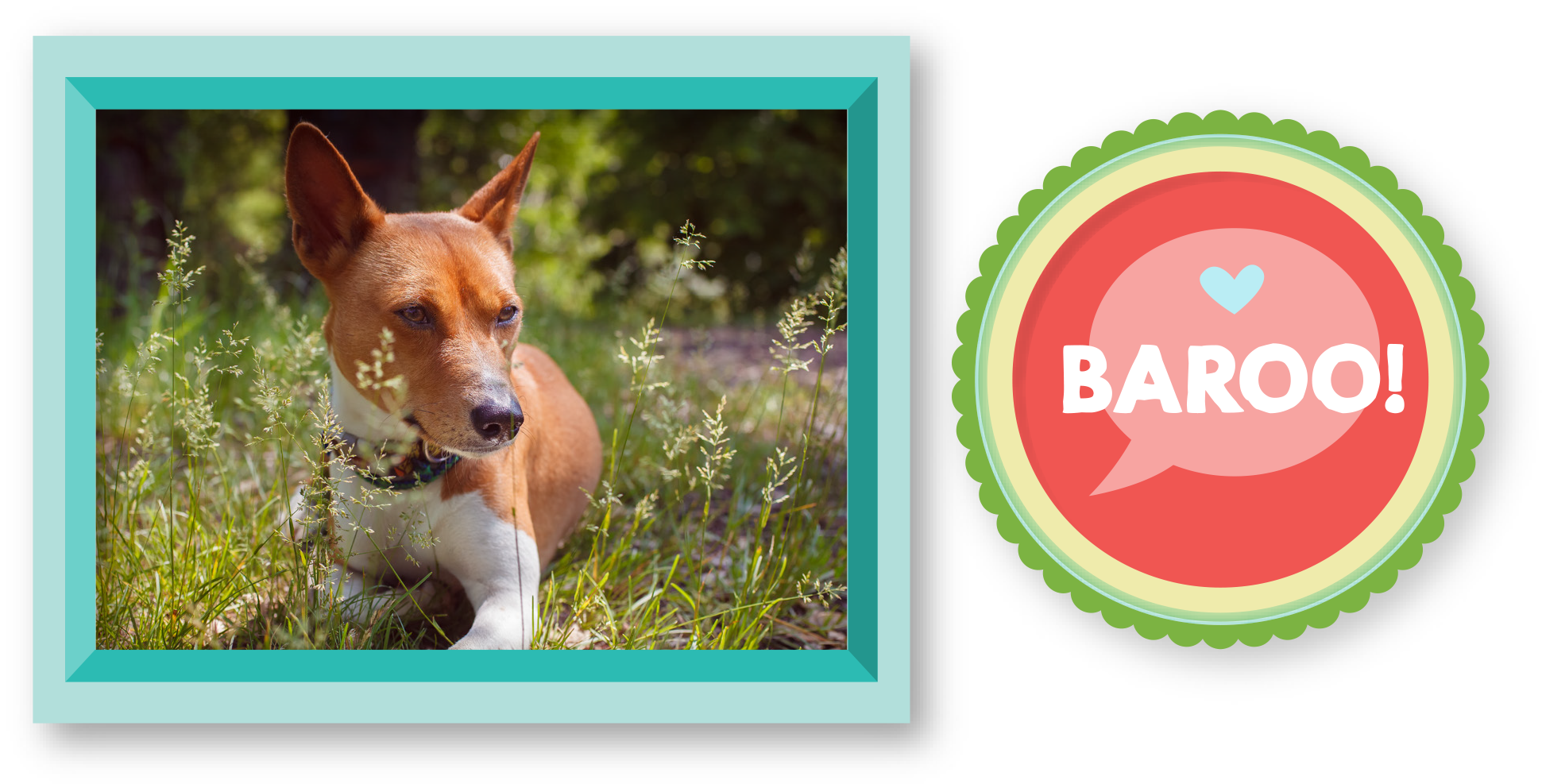
History of pets: Basenji

Well-known for their bark, or should we say lack thereof, the Basenji have dapper, short coats, curious and alert fur-sonalities, tightly curled tails and mischievous expressions thanks to their wrinkled brows. Their roots can be traced to Africa with a history predating ancient Egypt!
Back to the Basenji’s Beginnings
Basenjis without a doubt have ancient heritage. By the time they made their way up the Nile from interior Africa as gifts for the pharaohs, they were already a well-known breed. Their likeness has been found on ancient Egyptian artefacts, and as further evidence of their antiquity, traces of the breed can also be seen in ancient Babylonian and Mesopotamian art.

This breed took its name from the Congolese lingala word “Basenji”, which means “dog of the bush” or “dogs of the villagers” in the Central African region. Running in silent packs (making only a yodel-like sound commonly known as a “baroo”), they often wore bells to alert their humans to their location in the deep jungle. Interestingly, Basenjis are expert vertical leapers, a skill perfected to scout prey in African grasslands.
The same breed that was offered as gifts to the pharaohs was much the same as the breed that was introduced to the West in the late 1800s and was recognised officially as a breed by the American Kennel Club in 1943. In the 1980s several Basenjis were imported to the United States from Zaire in order to diversify the gene pool, as well as to help prevent some serious health problems, like Fanconi Syndrome.
Basenji Breed Basics
Basenjis belong to the hound dog family, but whether they are truly sighthounds or scenthounds is still being debated. The average height of a Basenji is 42 to 45cm’s at the shoulder and their average weight is 9.9 to 10.8kg’s.
Although Basenjis tend to be quiet, they still make excellent watchdogs due to their acute senses and wariness of strangers and will let you know immediately if something is up.
Siamese are also agile, athletic and love to play. You can keep them stimulated and entertained with puzzle and teaser toys, and big cat trees for climbing. Just be sure to leave them with something to busy themselves with, as boredom can turn to mildly destructive behaviour.
As affectionate cats, they require lots of attention and play time with their owners. A Siamese cat is ideal if you’re the type who looks forward to spending time and interacting with your cat.

Is a Basenji right for You
The basenji can seem cold towards strangers but are very affectionate with their families. They tend to be bright dogs, which can make training a challenge, but be assured that a little patience and creativity is well worth it in the end.
While they do not bark, their baroos make quite a bit of noise and if left to their own devices they can be chewers and diggers. They also have a fondness for climbing up onto high places. So, they need active owners who will can assist in expending some of their energy. Basenjis are usually good with other dogs if socialised while young, but some can be argumentative with other Basenjis. When it comes to cleaning, their short coats are easy to maintain, and they don’t shed a lot but they do a great deal of licking to groom themselves.
If you think a Basenji would best suit your home and lifestyle, make sure to check your local rescues and see if there are any looking for a fur-ever home, or find a certified breeder.






















